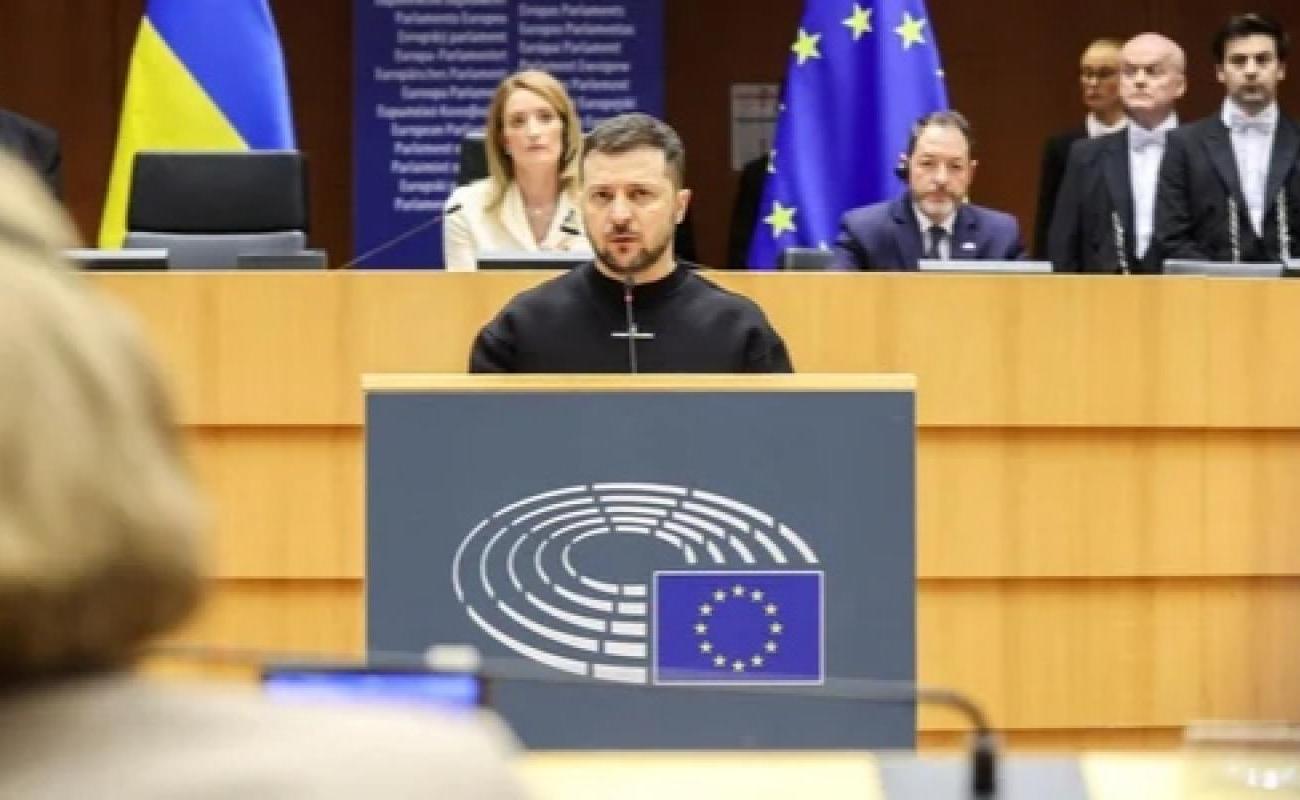Why supporting Ukraine would enhance European security — opinion

Europe is not in a good place when it comes to security. The Russo-Ukrainian war has turned Europe, once the most secure continent on the planet, into a theatre of world’s largest interstate war.
The raging conflict negatively affects neighbouring counties, supply chains, transitional and economic potentials, mutual trust and multilateral cooperation. It brings about uncertainty and recessions, traumatizing societies in European countries in a variety of ways. Security tends to be defined quite broadly these days, and the war is challenging European security in every possible dimension. So, when things go this wrong, why should Europe continue supporting Ukraine?
This question has already been raised by Western politicians, scholars and experts; and it is likely to be raised more often in the future, as the Russian-Ukrainian war will continue as a protracted positional nightmare, draining lives and resources from all parties involved. Putting Ukraine’s support under question may become not only a matter of political speculations, but also of an important strategic choice. That is, fundamentally, a choice between containing Russian revisionism by supporting Ukraine; doing the same without Ukraine; and looking for a deal with Moscow.
To make that choice right, several pragmatic considerations should be kept in mind. Striking a deal with Russia is theoretically possible, but under current circumstances is highly unlikely. This option would demand significant costs from and generate high risks for Europe. The key problem is a lack of institutional capacity, or, in other words, the deterioration of international order.
Multinational formats turned extremely inefficient amid the Russian-Ukrainian war. The OSCE, the Council of Europe, once considered functional elements of European security architecture, proved almost obsolete. The UN Charter has been violated; while NATO is hesitating and looks unwilling to directly confront Moscow. The EU is traditionally lacking common policy on security and foreign policy. Thus, Europeans can no longer rely on institutions.
That puts security strategy primarily into the hands of states, locked in the security dilemma. An immediate response to the war, as it often happens, is sought in raising defence expenditures, increasing military production, and stepping up overall security awareness. Zero-sum logic and lack of trust are byproducts of these developments.
Geopolitical compromises with Russia, in theory, can be possible and even sustainable if there is an underlying balance of interests/power. Moscow will stick to agreements if it believes that breaking them would be dangerous or of no use. That’s what happened on several occasions in recent couple of centuries, including the examples of the European Concert, World War II, and Cold War regulations, in particular the Helsinki Final Act. Deals with Moscow have often had practical sense for Europe, resulting in improved security or economic benefits.
But this time things are different. Crucial components for a grand geopolitical deal with Russia are absent. Annexation of Crimea and invasion of Ukraine have fundamentally shifted perception of Russia in the West. Moscow is increasingly seen as a threat; thus, any big deal with Russia would be politically inacceptable. Another crucial obstacle to such a deal is an escalating competition for hegemony between the United States and China. The world is polarizing; and the logic of bipolar rivalry is significantly narrowing prospects for a credible agreement with Moscow. Last, but not least, Russia’s aggression has undermined fundamentals of European security so much, that technically it will be tremendously difficult to find any terms of compromise in the Russian-Ukrainian war.
Thus, containing Russia remains the only strategic option for the West so far. Strategy of containment can either include Ukraine as one of the key elements or exclude it.
Excluding Ukraine implies limitations on arms supplies, denying security commitments, and focusing mostly on building up the West’s own capacity to deter Russia. Ukraine in that scenario is a geopolitical sacrifice. On the other hand, including Ukraine means extending security commitments, even if not in the form of classical alliances; bigger amounts of military assistance; and integration of Ukraine into the Western system of collective security. The former approach may look more attractive for public opinion in the West over time, because as the war continues, it will generate demand for egoism on the national level. But the latter strategy is better regarding long-term consequences and costs/benefits ratio.
There are at least two reasons for that: the value of Ukraine as a security asset, and risks of Ukraine’s defeat. Much has already been said about priceless experience Ukraine has got on the battlefield while denying Russia a conventional victory in a war. Over the course of recent years, Ukrainian army has become one of most formidable forces on the continent. In times, when value of military power is on the rise due to deterioration of security institutions, securing Ukraine’s military potential on the West’s side is a good strategy.
Moreover, polarization on the global level of international politics turns it into a zero-sum game: whatever you lose is gained by your opponent. Escalating competition between the West and the Global South leaves less space for compromised agreement. Conceding Ukraine to Russia’s geopolitical appetites under any ‘grand deal’ would be too risky. Limited assistance, as a strategic response between abandoning and incorporating Ukraine, may help the West to hedge some risks; but it hardly can be successful in the long run. Out of all strategic alternatives, currently available to the West, effective, massive and timely support for Ukraine is the best strategy the West can pick facing risks and challenges of a long-term conventional war in Europe.
This text is a part of the project ‘Pragmatic Dialogue with the West: Why It Is Worth Supporting Ukraine,’ undertaken with the support of the International Renaissance Foundation.
It presents the views of the author and not necessarily reflects the position of the International Renaissance Foundation.
